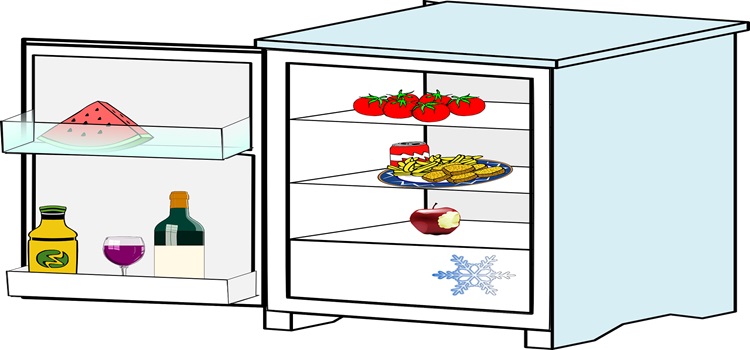As an Amazon Associate I earn from qualifying purchases.
Understanding a Hot Mini Fridge Compressor: Causes and Solutions
Introduction: A mini fridge is a versatile appliance, perfect for keeping beverages and perishables cool in small spaces like kitchens, dorm rooms, and offices. However, encountering a hot compressor can be a cause for concern. In this guide, we’ll explore why your mini fridge compressor might be hot and provide practical solutions to address the issue effectively.

Uses: Mini fridges offer various uses in the kitchen and beyond:
- Convenient storage for beverages, snacks, and leftovers.
- Ideal for small living spaces such as dorm rooms, offices, and RVs.
- Energy-efficient alternative to full-size refrigerators.
- Portable cooling solution for picnics, road trips, and outdoor gatherings.
Benefits: The benefits of a mini fridge with a properly functioning compressor include:
- Efficient cooling: The compressor circulates refrigerant to cool the interior of the fridge, maintaining optimal temperature levels.
- Long-lasting performance: With regular maintenance and care, a mini fridge compressor can provide reliable cooling for years.
- Space-saving design: Mini fridges are compact and can fit into tight spaces, making them ideal for small kitchens and living areas.
- Versatile storage options: Adjustable shelves and compartments allow for customizable storage of various food and beverage items.
Understanding a Hot Compressor: The compressor is a crucial component of a mini fridge, responsible for compressing and circulating refrigerant to cool the interior. It’s normal for the compressor to generate heat during operation. However, excessive heat buildup can indicate underlying issues that need attention.
Common Causes of a Hot Compressor: Several factors can contribute to a hot compressor in a mini fridge:
- Poor ventilation: Restricted airflow around the compressor can cause it to overheat. Ensure adequate ventilation by keeping the fridge away from walls and other obstructions.
- Dirty condenser coils: Dust and debris buildup on the condenser coils can hinder heat dissipation, leading to increased compressor temperature. Regular cleaning is essential to maintain optimal performance.
- Overloading: Placing too many items in the fridge can obstruct airflow and strain the compressor, causing it to work harder and heat up.
- Faulty compressor: If the compressor is malfunctioning or worn out, it may run hotter than usual. In such cases, professional repair or replacement may be necessary.
How to Address a Hot Compressor: To address a hot compressor in your mini fridge, follow these steps:
- Ensure proper ventilation: Position the fridge in a well-ventilated area away from walls and heat sources.
- Clean the condenser coils: Use a vacuum cleaner or brush to remove dust and debris from the condenser coils regularly.
- Avoid overloading: Keep the fridge well-organized with sufficient space for airflow around items.
- Check for compressor issues: If the compressor continues to run hot despite troubleshooting, contact a professional technician for diagnosis and repair.
FAQ (Frequently Asked Questions):
- Is it normal for a mini fridge compressor to feel hot?
- Yes, it’s normal for a compressor to generate heat during operation. However, excessive heat buildup may indicate underlying issues.
- How hot should a mini fridge compressor get?
- The compressor may feel warm to the touch during normal operation. However, if it feels excessively hot or emits burning odors, it may indicate a problem.
- Why is my mini fridge compressor running constantly?
- Constant running of the compressor could be due to factors such as temperature settings, dirty condenser coils, or overloading. Check these factors to determine the cause.
- Can a hot compressor cause food spoilage?
- A hot compressor may affect the cooling efficiency of the fridge, leading to potential food spoilage. Addressing the issue promptly is essential to prevent food waste.
- What should I do if my mini fridge compressor overheats?
- If the compressor overheats, unplug the fridge and allow it to cool down. Check for any obstructions to airflow and clean the condenser coils. If the problem persists, seek professional assistance.
- How often should I clean the condenser coils?
- Clean the condenser coils at least once every six months to maintain optimal cooling efficiency and prevent overheating.
- Can I replace the compressor myself?
- Replacing the compressor is a complex task that requires specialized skills and tools. It’s recommended to consult a professional technician for compressor replacement.
- What are the signs of a failing compressor?
- Signs of a failing compressor include excessive heat, unusual noises, reduced cooling efficiency, and frequent cycling on and off.
- Is it safe to touch a hot compressor?
- While it’s normal for a compressor to feel warm during operation, avoid touching it directly to prevent burns or injuries.
- How long do mini fridge compressors last?
- Mini fridge compressors can last for several years with proper maintenance and care. However, their lifespan may vary depending on usage and environmental factors.
Conclusion: In conclusion, a hot compressor in a mini fridge can be a sign of underlying issues that need attention. By understanding the common causes of compressor overheating and following the recommended troubleshooting steps, you can effectively address the problem and restore optimal cooling performance to your mini fridge. Whether you’re using it in the kitchen, dorm room, or office, a well-functioning mini fridge with a properly functioning compressor is essential for keeping your food and beverages cool and fresh.
As an Amazon Associate I earn from qualifying purchases.
Leave a Reply